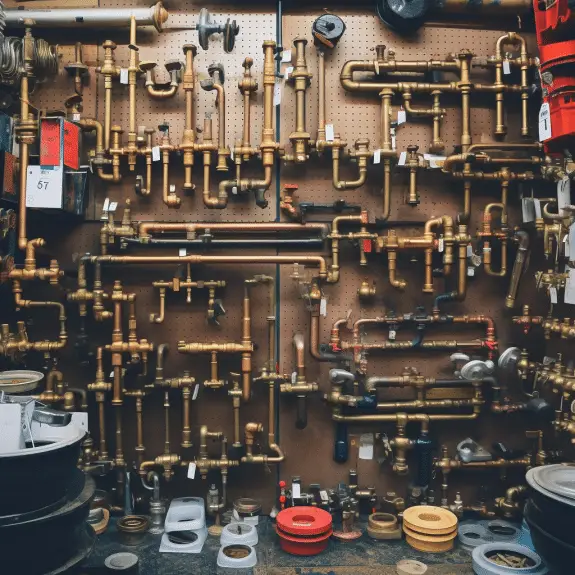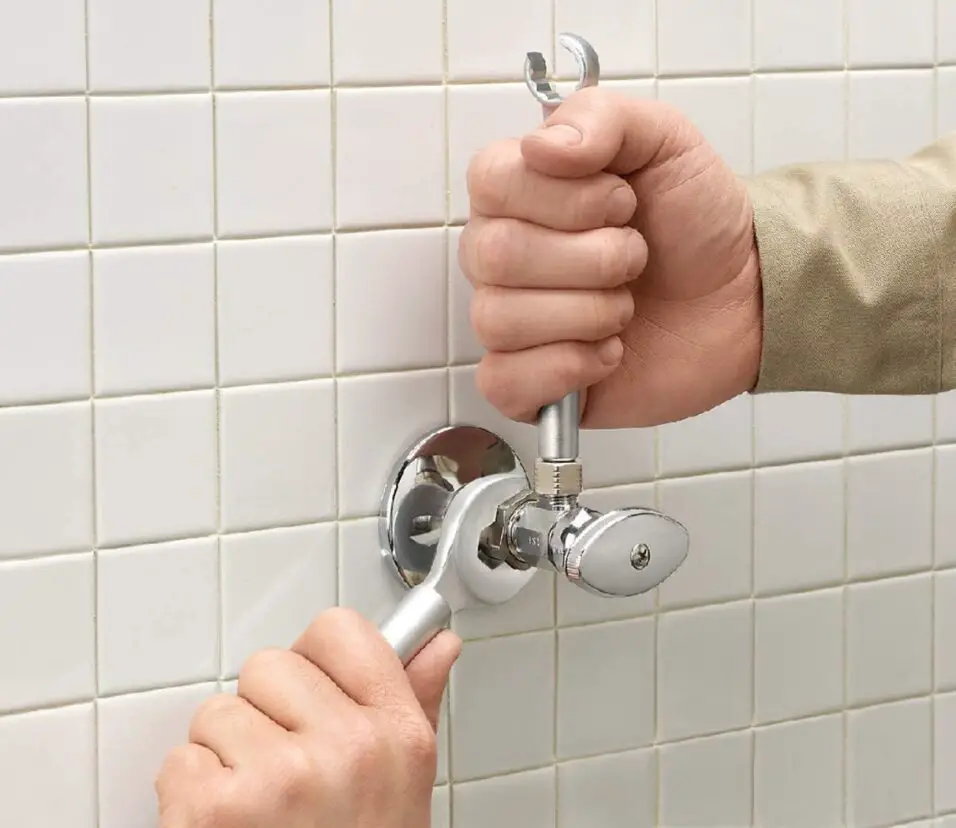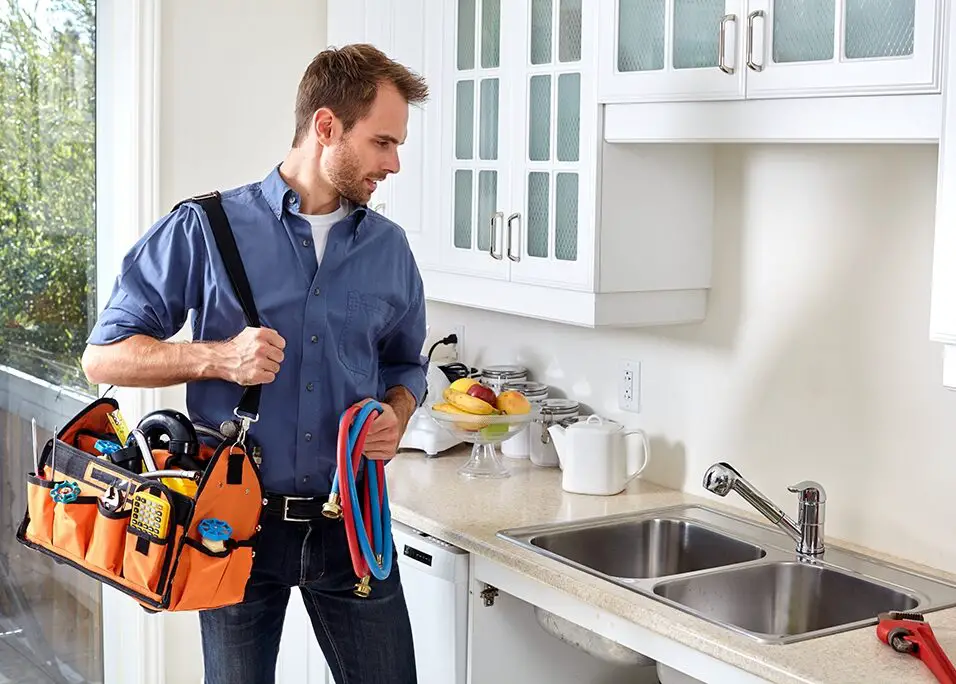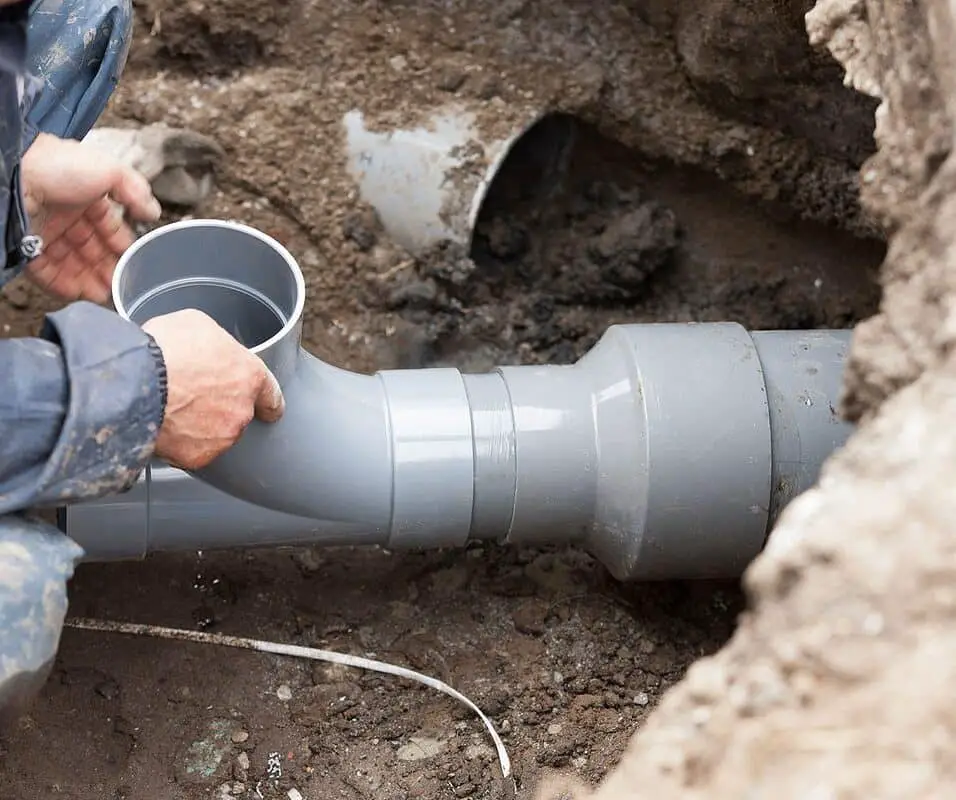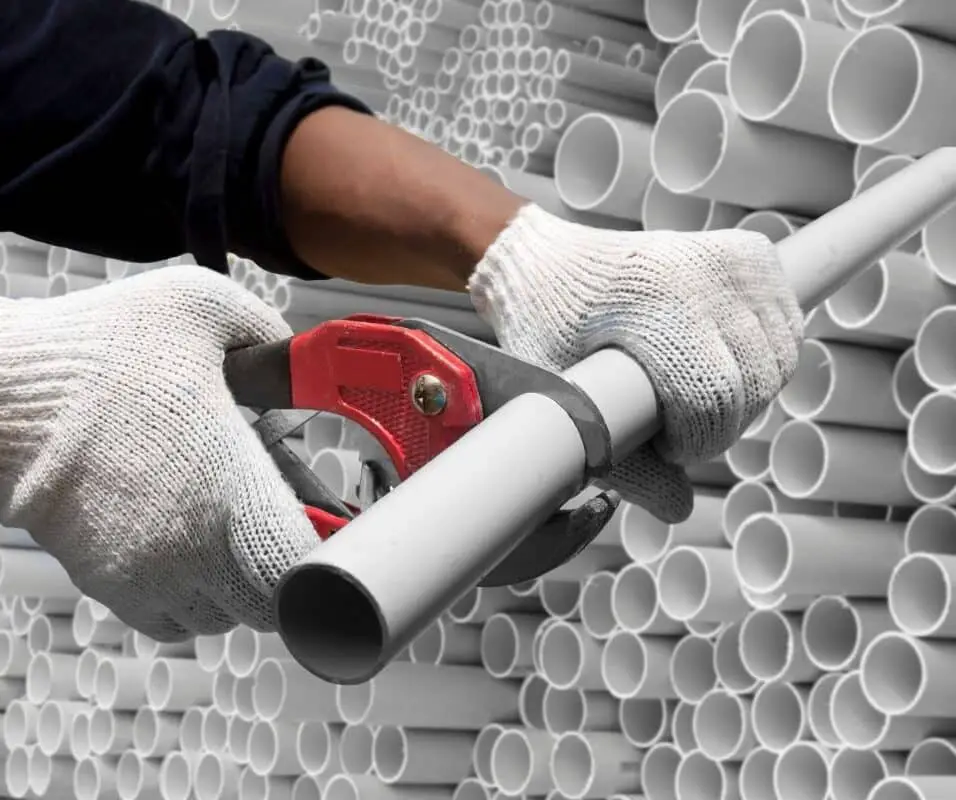How Long Does Copper Plumbing Last
Introduction
How Long Does Copper Plumbing Last: Its popularity stems from its exceptional corrosion resistance, malleability, and overall longevity. However, like any other material, copper plumbing is not impervious to the effects of time and various external factors.
In general, copper plumbing can have an impressive lifespan, often surpassing the lifetime of the structures it serves. When properly installed and maintained, copper pipes can last for several decades without significant issues. The average lifespan of copper plumbing ranges between 50 to 70 years, but it can potentially endure even longer with proper care.
Several factors can influence the longevity of copper plumbing. The quality of the installation, the water quality, and the environment in which the pipes are located are key considerations. Factors such as high water pressure, aggressive water chemistry, extreme temperature fluctuations, and corrosive soils can accelerate the deterioration of copper pipes. Fortunately, regular maintenance and prompt repairs can significantly extend the lifespan of copper plumbing. Inspections, leak detection, and addressing any signs of corrosion or damage can help prevent major issues and increase the longevity of the system.
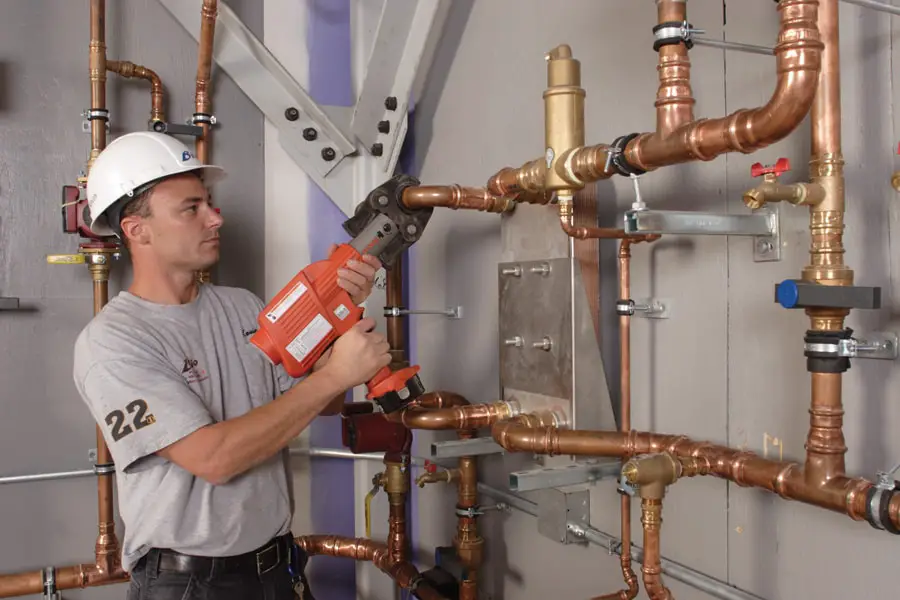
How Long Does Metal Plumbing Last?
Brass pipes typically endure 40–70 years, copper 50 years, and galvanized steel 20–50 years.
Due to their longevity and reliability, copper and galvanized steel pipes have long been used in household and commercial plumbing systems. Metal plumbing lifespan varies on material, installation, maintenance, and water conditions.
Copper pipes are corrosion-resistant and robust. Piping can endure 50–70 years or longer with correct installation and care. Copper pipes are ideal for hot and cold water systems because they resist rust and pressure.
However, galvanized steel pipes, used in older plumbing systems, wear out faster. Rust and corrosion can limit water flow and cause leaks in these lines. Galvanised steel pipes usually last 20–50 years. However, galvanized steel is banned in many modern plumbing rules due to health and safety concerns.
Does Copper Plumbing Need To Be Replaced?
With proper installation, copper plumbing should last you at least 50 years, though it can last you upwards of 60 or 70 years if you maintain your pipes properly.
Copper plumbing, known for its durability and corrosion resistance, is widely regarded as one of the most reliable materials for plumbing systems. However, like any plumbing material, copper pipes may eventually require replacement under certain circumstances. In general, copper plumbing does not have a fixed lifespan and can last for several decades. With proper installation and regular maintenance, copper pipes can easily serve a home for 50 to 70 years or even longer. However, there are situations where replacement becomes necessary.
One common reason for replacing copper plumbing is the presence of pinhole leaks. In such cases, replacing the affected sections or the entire plumbing system may be necessary.
Another reason for copper plumbing replacement is related to changing building codes and regulations. Over time, plumbing standards and requirements may evolve, and older plumbing systems may no longer meet the current code specifications. This may involve upgrading to different materials or implementing new installation techniques to ensure compliance and safety.
Does Copper Plumbing Go Bad?
Residential copper pipes typically last from 20-50 years depending on the type. Certain types of copper piping are more susceptible to corrosion than others. A professional plumber can help determine if your home is equipped with a thinner variety that will degrade faster.
Copper plumbing, renowned for its durability and resistance to corrosion, is generally considered a reliable choice for plumbing systems. However, like any material, copper plumbing can experience issues over time, leading to the need for repairs or replacement.
One of the primary concerns with copper plumbing is the development of pinhole leaks. Pinhole leaks are tiny holes that form in the copper pipes, typically due to factors such as water chemistry, corrosive agents, or improper installation. These leaks can cause water damage, reduced water pressure, and increased utility bills. While not all copper pipes will develop pinhole leaks, it is a potential issue that homeowners should be aware of.
Another factor that can affect copper plumbing is water quality. Hard water, which contains high levels of minerals such as calcium and magnesium, can cause mineral buildup inside the pipes. Over time, this buildup can lead to reduced water flow and eventually blockages. Regular maintenance, such as descaling or water softening treatments, can help mitigate these issues.
In some cases, copper plumbing may encounter issues with freezing and bursting. Copper pipes are more resistant to freezing than other materials, but extreme cold temperatures can still cause them to freeze and potentially burst. Proper insulation and precautions during cold weather can help prevent this problem.
How Long Does It Take For Copper Pipes To Rust?
In general, copper pipes can last for several decades before showing signs of corrosion. However, if the water chemistry is highly acidic or if the pipes are exposed to harsh chemicals or extreme temperatures, the rate of corrosion can increase significantly. In these cases, copper pipes may corrode within a few years.
Copper pipes are renowned for their resistance to rust or corrosion, making them a durable choice for plumbing systems. Unlike materials like iron or steel, copper does not rust in the traditional sense. Instead, it develops a greenish patina called copper oxide, which actually provides a protective layer against further corrosion.
Under normal conditions, copper pipes do not rust or corrode. However, certain factors can contribute to the development of corrosion over time. One such factor is exposure to aggressive water conditions. If the water supply has high levels of acidity or alkalinity, it can accelerate the corrosion process. Similarly, water with high chloride or sulfur content can also contribute to corrosion. In these cases, the corrosion may manifest as pitting, where small pits or depressions form on the surface of the copper pipes.
Another factor that can affect copper pipes is poor installation practices. If the pipes are not properly soldered or if incompatible materials are used, it can create an electrolytic reaction that leads to corrosion. Additionally, excessive exposure to moisture or humidity, particularly in damp environments, can increase the risk of corrosion. In most cases, copper pipes can last for several decades without showing any signs of rust or corrosion. With proper installation, regular maintenance, and favorable water conditions, copper pipes can easily serve a home for 50 to 70 years or even longer.
Do Copper Pipes Last Longer Than Pvc?
Copper piping has an impressive lifespan of 50+ years, making it one of the longest-lasting pipes on the market. In comparison, PVC pipes tend to fall apart much more easily. Of course, we also have to consider how well each type of pipe stands up to damage.
When comparing copper pipes to PVC (Polyvinyl Chloride) pipes, it’s important to consider their differences in terms of material properties, installation methods, and intended applications. While both types of pipes have their advantages, copper pipes generally have a longer lifespan compared to PVC pipes.
On the other hand, PVC pipes are a popular choice for various plumbing applications due to their affordability, lightweight nature, and ease of installation. However, PVC pipes have a shorter lifespan compared to copper. While the lifespan of PVC pipes can vary depending on factors such as water quality, pressure, and exposure to sunlight, they generally have an average lifespan of 25 to 40 years. Over time, PVC pipes can become brittle and prone to cracking or leaking, especially in areas with extreme temperatures or exposure to UV rays.
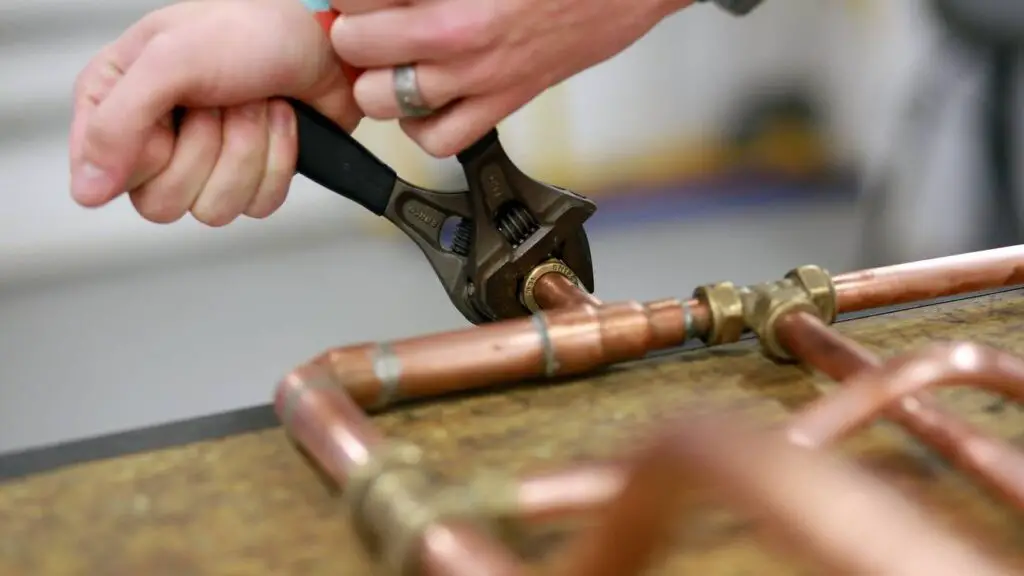
What Is The Longest Lasting Plumbing Pipe?
Drainage pipes are often made of cast iron or polyvinyl chloride, or PVC. Cast iron will last anywhere from 75-100 years while PVC wins the award for longest-lasting pipe material with an indefinite lifespan.
When it comes to plumbing pipes, several materials are known for their exceptional longevity. While the lifespan of a plumbing pipe can vary based on factors such as installation quality, maintenance practices, and environmental conditions, certain materials are renowned for their durability and extended lifespan.
One of the longest-lasting plumbing pipe materials is cast iron. Cast iron pipes have been used for plumbing systems for centuries and have demonstrated remarkable durability. With proper installation and maintenance, cast iron pipes can last for over 100 years. They are resistant to rust and corrosion and can withstand high pressure and temperature fluctuations, making them ideal for drain and sewer lines.
Another material with an impressive lifespan is copper. Copper pipes have excellent corrosion resistance and can withstand extreme temperatures and pressures. With proper installation and maintenance, copper pipes can easily last for 50 to 70 years or more. Copper plumbing systems in older buildings have demonstrated their longevity, making them a trusted choice for water supply lines.
Does Copper Plumbing Rust?
Although rare compared to other materials like iron or steel, copper piping can still corrode and rust over time depending on its environment and exposure to certain elements like saltwater or chlorine.
Copper plumbing does not rust in the same way as materials like iron or steel. Rust is the result of oxidation in iron-based metals, where iron reacts with oxygen and water to form iron oxide. Copper, on the other hand, is highly resistant to corrosion and does not undergo the same rusting process.
However, copper can develop a greenish patina over time, known as copper oxide or verdigris. This patina forms as a result of copper’s reaction to the environment, particularly exposure to air and moisture. The formation of copper oxide is a natural process and actually acts as a protective layer, preventing further corrosion of the underlying copper.
The presence of copper oxide is generally not a cause for concern in plumbing systems. In fact, it is often considered an indication of the copper’s durability and resistance to corrosion. Copper plumbing pipes maintain their structural integrity over time, and the copper oxide layer helps to protect against pitting or deterioration.
What Is Better Than Copper Plumbing?
PEX pipe is not only cheaper than copper but more durable too. PEX is immune to corrosion and mineral build-up, and it’s not affected by electrolysis, which can cause small pinhole leaks in copper piping. Copper pipes can last anywhere from six months to the life of a building.
While copper plumbing is widely regarded as a reliable and durable option, there are alternative materials that may be considered better in certain situations or for specific plumbing applications. Two commonly used alternatives to copper plumbing are PEX (cross-linked polyethylene) and CPVC (chlorinated polyvinyl chloride).
PEX plumbing has gained popularity due to its flexibility, ease of installation, and resistance to corrosion. They are also less prone to freezing and bursting compared to copper pipes. CPVC pipes are lightweight, cost-effective, and relatively easy to install. They have good chemical resistance and are less prone to scale buildup compared to copper pipes.
What Factors Affect The Lifespan Of Copper Plumbing?
Several factors can influence the lifespan of copper plumbing. These include water quality (high mineral content or corrosive elements can accelerate corrosion), installation quality (proper soldering and fitting techniques), maintenance (regular inspections and repairs), and external factors (such as exposure to extreme temperatures or physical damage).
Several factors can influence the lifespan of copper plumbing. While copper is known for its durability and resistance to corrosion, these factors should be considered to ensure the longevity of the plumbing system:
Water Quality: The quality of the water flowing through copper pipes can impact their lifespan. Water with high levels of acidity, alkalinity, or corrosive agents can accelerate corrosion and potentially shorten the lifespan of the pipes. Regular water testing and implementing appropriate water treatment measures can help mitigate this issue.
Installation Quality: Proper installation is crucial for the longevity of copper plumbing. Improper soldering, inadequate support, or using incompatible materials can lead to leaks, damage, or premature deterioration.
Maintenance Practices: Regular maintenance is essential for the upkeep of copper plumbing. This includes proactive measures such as inspecting for signs of corrosion, promptly repairing leaks, and addressing any plumbing issues. Regular maintenance can help identify and resolve potential problems before they worsen, extending the lifespan of the plumbing system.
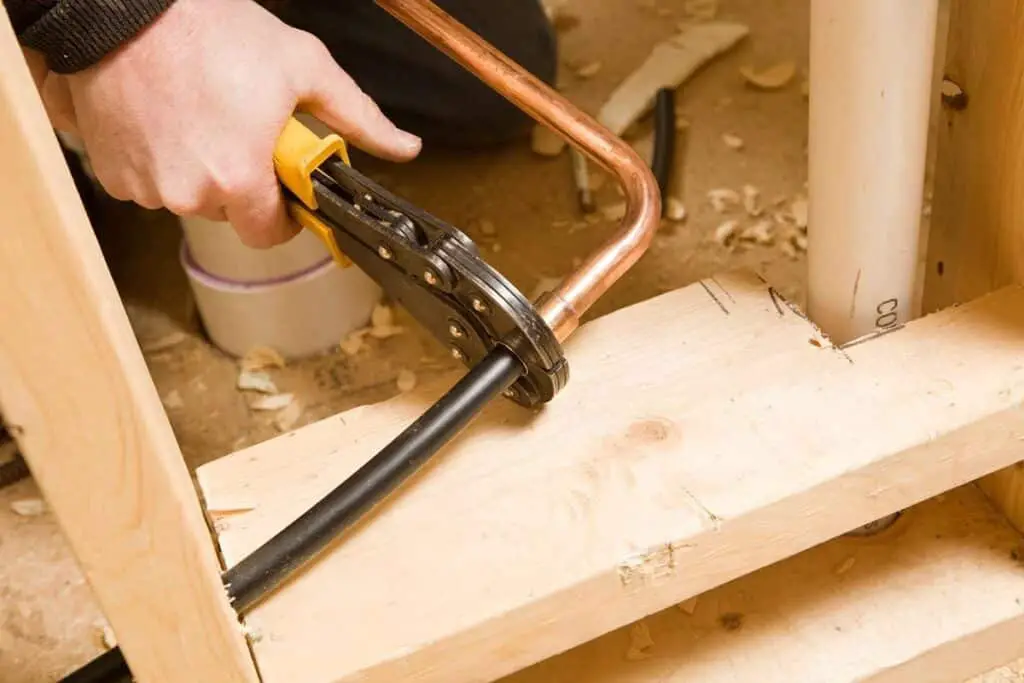
Conclusion
Copper plumbing has proven itself as a reliable and long-lasting material for plumbing systems, with an average lifespan ranging from 50 to 70 years. However, this lifespan can be influenced by various factors such as installation quality, water quality, and environmental conditions. It is crucial for homeowners, plumbers, and construction professionals to be aware of these factors and take proactive measures to maintain and care for their copper plumbing systems.
Regular inspections, leak detection, and prompt repairs are essential in extending the lifespan of copper pipes. By addressing any signs of corrosion, damage, or leaks early on, homeowners can prevent major issues that could lead to costly repairs or replacements. Additionally, maintaining appropriate water pressure and addressing any aggressive water chemistry concerns can further protect copper pipes from premature deterioration.
While copper plumbing has been the go-to choice for many years, it is important to keep an eye on emerging alternatives in the market. Newer materials such as PEX (cross-linked polyethylene) pipes offer their own set of advantages, including lower cost and ease of installation. However, copper remains a highly regarded and trusted material for plumbing due to its proven track record and durability.




